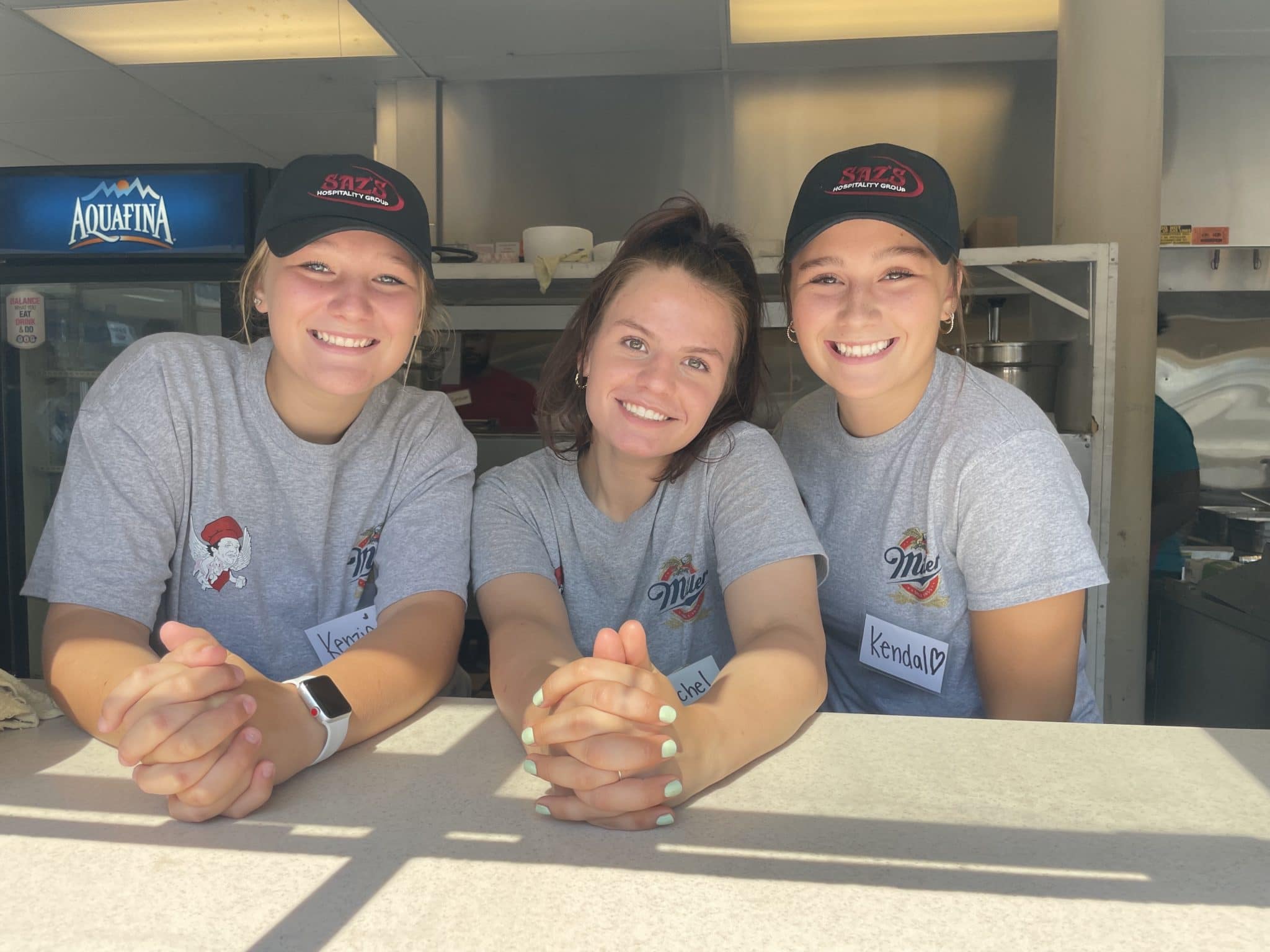This update includes FDA and USDA updates, FDA warning letters, lawsuits, and other articles of interest, including the revocation of authorization to use brominated vegetable oil, a proposed new policy to reduce salmonella in raw poultry, findings from a fresh herbs study, and more.
FDA Updates
FDA Revokes Authorization for Use of Brominated Vegetable Oil in Food
July 3: The Food and Drug Administration (FDA) is revoking the regulation authorizing the use of brominated vegetable oil (BVO) in food. BVO is a vegetable oil that is modified with bromine. The FDA concluded that the intended use of BVO in food is no longer considered safe after the results of studies conducted in collaboration with the National Institutes of Health found the potential for adverse health effects in humans. The rule is effective August 2, 2024. Companies have one year after the effective date to comply with the rule to reformulate, relabel, and deplete the inventory of BVO-containing products. More information can be found here.
FDA Files Phytolon Ltd. Color Additive Petition
July 18: The FDA has filed a petition, submitted by Phytolon Ltd., proposing to amend color additive regulations in 21 CFR part 73 to provide for the safe use of prickly pear yellow for the coloring of foods generally in amounts consistent with current good manufacturing practice. More information can be found here.
FDA Collecting Information on Testing and Corrective Measures for Bottled Water
July 23: The FDA is soliciting comments on the procedure by which both domestic and foreign bottled water manufacturers that sell bottled water in the United States maintain records of microbiological testing and corrective measures, in addition to existing recordkeeping requirements. The respondents to this information collection are domestic and foreign bottled water manufacturers that sell bottled water in the U.S. Comments must be submitted by September 23, 2024. More information can be found here.
FDA Collecting Information on Regulations Under the Federal Import Milk Act
July 23: The FDA announced a collection of information pertaining to regulations under the Federal Import Milk Act. The information collected will be used by FDA to determine whether a permit to import milk and/or cream into the United States should be granted. Respondents include foreign dairy farms and plants engaged in transporting milk and/or cream into the United States. The comment deadline is August 22, 2024. More information can be found here.
FDA Reopening Comment Period for Food Additive Petition
July 25: The FDA is reopening the comment period for the notification of a food additive petition, published in the Federal Register on 4/26/2024, submitted by Environmental Defense Fund, et al. The petition proposes that the food additive regulations be amended to remove fluorinated polyethylene. FDA is reopening the comment period to add the food additive petition to the docket and making a correction to the filing notice. Comments must be submitted by September 23, 2024. More information can be found here.
FDA Warning Letters
Copycat Delta-8 THC Food Products: The FDA and Federal Trade Commission (FTC) issued warning letters to six companies for illegally selling food products containing Delta-8 THC that mimic chips, candies and snacks, and which are sold in deceptive packaging that could easily be confused for popular national brands. The FDA and FTC are concerned that copycat food products containing Delta-8 THC are easy to purchase and often available to youth. The agencies are also concerned that the processes used to synthesize Delta-8 THC can result in edible products that may be harmful or have unpredictable effects on consumers.
Low Acid Canned Food: The FDA issued a warning letter to a Chinese manufacturer of low acid canned food for violating federal regulations relating to the processing of low-acid foods packaged in hermetically sealed containers, rendering the company’s 230g pouches of roasted gluten adulterated.
Adulterated Granola: The FDA issued a warning letter to PepsiCo, Inc. following an inspection of its ready to eat (RTE) food manufacturing facility in Illinois that manufactures RTE granola bars and cereals. The inspection was initiated in response to a Reportable Food Registry report and recall of the company’s granola bars and granola cereals announced on December 15, 2023. The FDA determined that the RTE granola bars and cereals manufactured in the facility are adulterated and violate the Current Good Manufacturing Practice (CGMP), Hazard Analysis, and Risk-Based Preventive Controls for Human Food regulation because they were prepared, packed, or held under insanitary conditions.
Misbranded Dietary Supplements: The FDA issued a warning letter to Formulation Technology, Inc. involving its product (b)(4), which is intended to cure, treat, or prevent migraines. According to the FDA, the (b)(4) product is not generally recognized as safe and effective for this use and is considered an unapproved new drug. The FDA also alleged the product is an adulterated dietary supplement and misbranded because it does not comply with the labeling requirements for dietary supplements and because they have been prepared, packed, or held under conditions that do not meet CGMP requirements for dietary supplements.
A database of warning letters can be found here.
USDA Updates
FSIS Begins New Allergen Verification Sampling Program
July 19: Beginning on September 1, 2024, the USDA Food Safety and Inspection Service (FSIS) will launch a new allergen verification sampling program targeting RTE products that declare the absence of specific food allergens on their labeling. This program will test for common allergens, including soy, various shellfish, eggs, peanuts, milk, various tree nuts, and gluten. FSIS intends to continue to develop the sampling program to include analysis for sesame. FSIS is implementing this program to expand its verification of industry compliance with labeling regulations. This new program expands upon and replaces FSIS’ current soy testing program to include multiple allergens and gluten, in addition to soy. The program aims to ensure the accuracy of labeling claims for allergens in RTE products, ultimately enhancing consumer safety. More information can be found here.
USDA Proposes New Policy to Reduce Salmonella in Raw Poultry Products
July 29: The FSIS issued a comprehensive proposed rule and determination to reduce Salmonella contamination and illnesses associated with raw poultry products. The proposed rule would make it illegal to sell chicken, chicken parts or ground chicken and turkey if it is found to be contaminated with certain types of Salmonella. The proposal would establish final product standards to prevent raw chicken carcasses, chicken parts, ground chicken, and ground turkey products that contain any type of Salmonella at or above 10 colony forming units (CFU) per gram/ml and any detectable level of at least one of the Salmonella serotypes of public health significance from entering commerce. The proposed rule would also require poultry establishments to develop a microbial monitoring program to prevent pathogen contamination throughout the slaughter system. Comments on the proposed rule must be received by October 7, 2024. More information can be found here.
Other Articles of Interest
USDA Proposes Amendments to Milk Pricing Amid Dairy Industry Concerns
July 10: Following a lengthy hearing process, the USDA’s Agricultural Marketing Service (AMS) proposed amendments to federal milk marketing orders to update milk pricing formulas. The modifications could affect protein, solid content, and surveyed commodity prices, as well as factoring in changes to manufacturing allowances for several dairy products. Some stakeholders, including the American Farm Bureau and National Milk Producers Federation, are cautiously optimistic but express concerns over processing costs and the transparency of data informing these costs. Key changes include raising the value returned to farmers for bottled milk and updating the pricing structures for cheese and butter products. However, proposed reductions in class prices to accommodate processing costs are disputed due to lack of solid data on those costs. The proposed amendments have been published in the Federal Register. Stakeholders have until September 13, 2024 to submit comments. A final rule is expected to be published in mid-November. More information can be found here and on the AMS website.
Petitions Filed with EPA Seek to Ban PFAS in Pesticides and Plastic Containers
July 23: Citizen groups have petitioned the US EPA to revise regulations to prohibit per- and polyfluoroalkyl substances (PFAS) and plastic containers that leach PFAS chemicals into stored pesticides. A coalition led by the Center for Food Safety petitioned the EPA to amend the Federal Insecticide, Fungicide, and Rodenticide Act (FIFRA) to ban PFAS from pesticides. The coalition is requesting the EPA adopt a broad regulatory definition of PFAS and prohibit pesticides from being stored or transported in fluorinated high-density polyethylene and polypropylene containers. Earlier in July, the EPA granted a separate petition from environmental groups urging the EPA to take action under the Toxic Substances Control Act (TSCA) to regulate PFAS created through fluorination. In granting that petition, the EPA agreed to address PFAS created during the fluorination of plastic containers that are used in a variety of household and industrial products.
FDA Releases Findings from Fresh Herbs Study
July 26: The FDA released findings from a sampling assignment that collected and tested domestic and imported fresh basil, cilantro, and parsley to estimate the prevalence of Cyclospora cayetanensis, Salmonella spp., and Shiga toxin-producing Escherichia coli (STEC) in the herbs. From September 2017 to September 2021, the FDA tested a total of 1,383 samples of fresh basil, cilantro, and parsley. Salmonella was detected in 17 out of 1,358 samples, C. cayetanensis was detected in 18 out of 812 samples, and STEC was detected in 1 out of 1,350 samples. This data will help the FDA develop guidance and update program priorities. More information can be found here.
FDA Announces Food Safety Modernization Act User Fee Rates for FY 2025
July 31: The FDA announced the fiscal year (FY) 2025 user fee rates for importers approved to participate in the Voluntary Qualified Importer Program (VQIP) and accreditation and certification bodies interested in participating in the Accredited Third-Party Certification Program (TPP). The FDA also announced FY 2025 fee rates for certain domestic and foreign facility reinspections, including failures to comply with a recall order and importer reinspections. The user fee rates are authorized by the FDA Food Safety Modernization Act and allow the agency to assess and collect fees to cover the FDA’s cost of administering these programs. The fees apply from October 1, 2024, through September 30, 2025. More information can be found here.
Lawsuits
Nestle Seeks Dismissal of Poland Spring ‘Natural Spring Water’ Labeling Lawsuit
July 7: Nestle Waters North America Inc., which owns the Poland Spring brand, is seeking to dismiss a lawsuit alleging the brand’s water does not come from an actual spring. The class action lawsuit alleges that the Poland Spring water is falsely labeled as “100% Natural Spring Water” when it is sourced from wells and boreholes, not natural springs. In a Connecticut federal court, Nestle argued that the term “spring water” means different things to different people and that there is no proof consumers were confused or deceived. U.S. District Judge Jeffrey A. Meyer noted consumer preference for spring water but questioned the definition clarity of what defines spring water. The plaintiffs allege fraud and consumer protection violations, while Nestle contends that definitions and customer perceptions of spring water vary widely. The case, ongoing since 2017, awaits a decision on Nestle’s summary judgment motion with class certification on hold. Judge Meyer has committed to delivering a decision as soon as possible.
Albertsons Seeks Dismissal of ‘Naturally Flavored’ Cereal Bar Labeling Lawsuit
July 8: Grocery store chain, Albertsons, urged a California federal judge to dismiss a class action lawsuit accusing it of falsely advertising its Signature Select cereal bars as “naturally flavored,” despite the use of artificial malic acid. The plaintiff, Mark Trammell, claims he was misled by the label and would prefer to consume foods with only natural flavors. Albertsons argues that similar cases have been dismissed nationwide as courts found such labels did not deceive reasonable consumers and did not claim the products were free from artificial ingredients. Albertsons maintains their labeling meets FDA requirements, the presence of malic acid is disclosed, and its use is for flavor balance, not as a characterizing flavor. The plaintiff’s standing to sue is also questioned, suggesting his claims are driven by motives for litigation rather than consumer deception. A copy of Albertsons memorandum to the Court in support of its motion to dismiss can be found here.
Coca-Cola Faces Revised Class Action Suit over PFAS in Simply Orange Juice
July 11: An amended proposed class action lawsuit was refiled against Coca-Cola and its Simply Orange Juice Co. subsidiary, claiming that they falsely advertise their juices as pure, healthy, and all-natural, despite allegedly containing PFAS compounds. The plaintiff’s prior complaint was dismissed in June 2024 because the test results were not sufficiently connected to his purchases of Simply Orange products. The amended complaint cites new third-party testing, claiming uniform contamination in the product line, including excessive levels of PFAS in certain products, like Simply Tropical. The plaintiff alleges that testing revealed PFAS levels more than 100 times above health advisory levels for drinking water as issued by the EPA. He further contends that some products he had purchased, including pulp-free Simply Orange and Simply Orange with Mango, contained dangerous levels of PFAS compounds. According to the complaint, Coca-Cola has been aware of PFAS since at least 2021 but continued to market the Simply Orange products under the guise of being natural and using “pure filtered water,” without disclosing the presence of PFAS. The plaintiff argues that this constitutes misbranding, as well as negligence and unjust enrichment, and it violates the New York Deceptive Trade Practices Act and New York State Agriculture and Markets Law. A copy of the amended complaint can be found here.
Snapple Owner Wins Temporary Dismissal in ‘All Natural’ Labeling Class Action
July 17: Keurig Dr Pepper Inc. has temporarily prevailed in a case where it was accused of falsely advertising its Snapple and Nantucket Nectars beverages as “all natural” while they allegedly contain PFAS chemicals. The lawsuit was dismissed by the Eastern District of New York because the lead plaintiff, Timothy Walker, did not provide sufficient details about his injury for standing purposes, such as the timing of his purchases or when he conducted the testing that allegedly detected PFAS. The lawsuit alleged consumers were misled by the “all natural” label and sought claims under New York’s General Business Law for breach of warranty, fraud, and unjust enrichment. However, the Court found the evidence presented, particularly around systematic contamination and PFAS levels, to be inadequate without more precise information. The dismissal was without prejudice, meaning Walker can file an amended complaint.
Eggland’s Best Faces Class Action over Alleged Deceptive ‘Cage Free’ Egg Labeling
July 24: A proposed class action lawsuit was filed against Eggland’s Best Inc. in the US District Court for the Northern District of Illinois for falsely marketing some eggs as “cage free” when, as the lawsuit alleges, the eggs are produced by hens living in cramped, factory-farm conditions. The plaintiffs assert that the packaging is deceptive because it claims that hens are free to roam in natural environments. They argue that consumers are misled to pay a premium for these eggs under the belief they are encouraging better animal welfare standards. According to the complaint, the hens are kept in large, artificial structures that restrict natural behavior and outdoor access. The lawsuit is based on claims of consumer fraud and unjust enrichment under Illinois law. A copy of the complaint can be found here.
Environmental Groups Sue EPA over PFAS in Plastic Containers
July 25: In addition to the petitions filed with US EPA described above, environmental groups also filed a lawsuit against the EPA in the US District Court for the District of Columbia alleging the lack of action to regulate the distribution of plastic containers contaminated with PFAS. The environmental groups argue that the EPA violated the Toxic Substances Control Act (TSCA) by failing to act within 180 days of receiving information that suggests a significant risk of harm from PFAS and they ask EPA to halt the manufacture and distribution of “tens of millions” of containers. The complaint alleges a harmful type of PFAS is created through the fluorination of plastic containers by Inhance Technologies LLC and the EPA is obligated to act under TSCA as the agency had conclusive data since March 2023 that PFAS is found in fluorinated plastic containers. However, the EPA previously attempted to order a halt to Inhance’s production of PFAS in plastic containers only to be struck down in court. A copy of the complaint can be found here.
This Regulatory Update covers information from July 2024.
Please contact Paul Benson, Taylor Fritsch, or Leah Ziemba for
additional information on regulatory issues that
may affect your business. For access to articles and resources from our Premium Member law firm, Michael Best & Friedrich, visit michaelbest.com.








